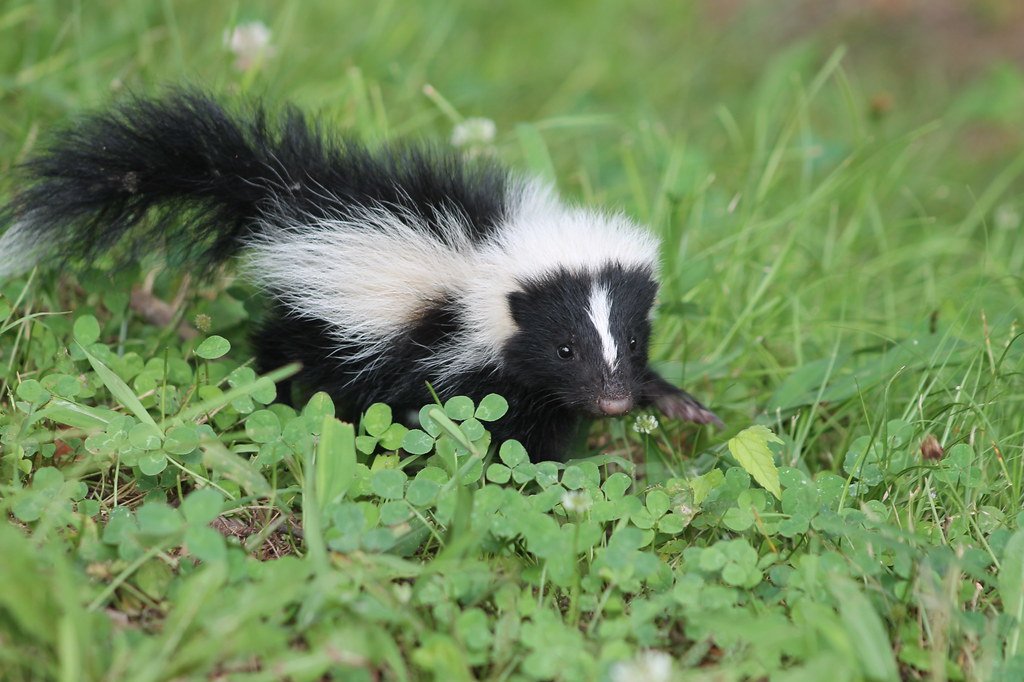What Attracts Skunks To My Home?

Skunks are drawn to residential areas because they require shelter, water, and food, all readily available in homes and backyards. You can take a few steps to keep skunks from establishing a home on your property.
Skunks are nocturnal, solitary, and rarely travel long distances. They build dens wherever food, water, and shelter are available. Basements, under decks and porches, and crawlspaces are examples of places where it’s dark and safe from predators.
Learn More: FAQ Skunk Control
Where Do Skunks Live?
Skunks are incredibly adaptable and can thrive in various environments as long as food, water, and shelter are available. They have the ability to live in both rural and urban settings.
Skunks usually live in dens dug with their powerful front claws. These dens will be holes in your yard that you find. Other animals, such as foxes or woodchucks, may have built an abandoned den for them to live in. They have been known to live in hollow logs, woodpiles, and brush piles.
Skunks frequently live near humans due to an abundance of food and water. They’ve been known to live under porches, in sheds, and in dark enclosures around houses. Skunk dens can be found in garages, barns, and other structures not attached to a home.
What Do Skunks Eat?
Skunks are omnivores with a wide range of food preferences. Small prey and insects, especially in the summer and spring, are their preferred foods. When food is scarce, skunks eat plants. Skunks may invade garbage and trash for food in the winter when food is scarce.
Skunks will use the summer months, when food is plentiful, to eat a lot of food to sustain themselves and their young during the winter months.
How To Prevent A Skunk Infestation?
Skunks are opportunists by nature, preferring low-hanging fruit like trash and pet food left out at night, as well as convenient denning sites like wood and rock piles, elevated sheds, openings under concrete slabs, porches, and crawl spaces.
The likelihood of a skunk encounter can be reduced by taking preventative measures such as removing attractants from the vicinity of homes. Secure trash, cover window wells, feed pets indoors, or remove food immediately after eating if fed outdoors are all examples of this. To avoid denning, exclusion techniques should be used before an animal’s arrival.
Who To Call For Skunk Proofing?
Animals Happen helps residents and skunks coexist by humanely removing skunks and preventing them from returning. Common exclusion practices our pre-qualified technicians perform include:
- Underground barriers are installed to prevent burrowing
- Wildlife-proof steel wiring prevents access beneath patios
- Repair damaged siding, fencing, and seal opening to keep animals out
